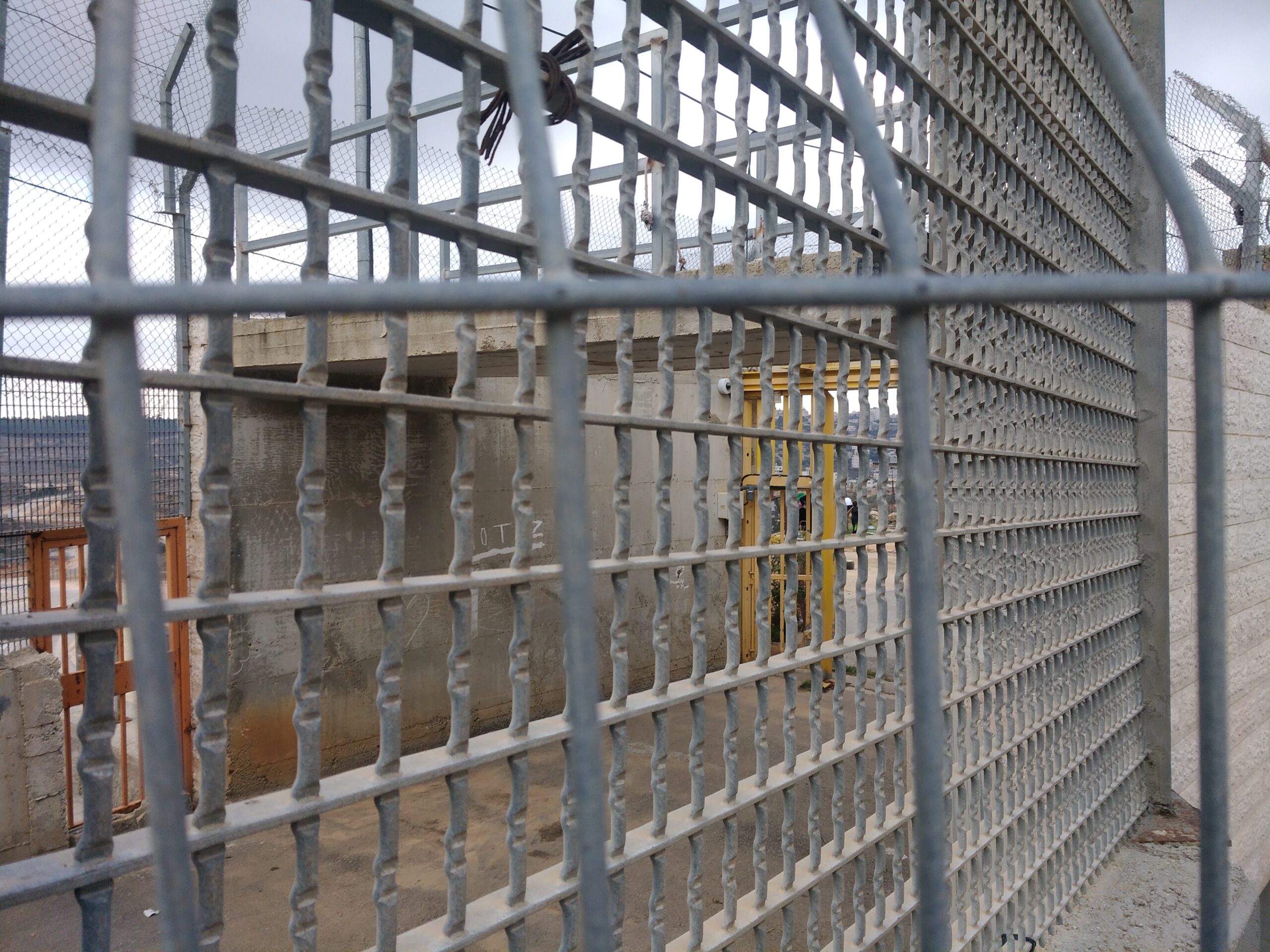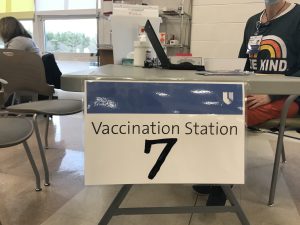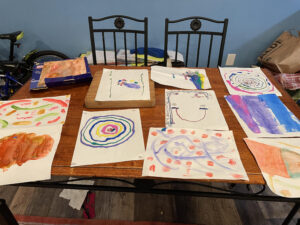A little girl who just wants to marry her giraffe shouldn’t have to shoulder the responsibility of her parents’ struggle with the occupying authorities.
The automated phone system of the Civil Administration, the military unit responsible for civilian affairs in the West Bank, assured me of the importance of my call and that all efforts were being made to answer me as soon as possible. And also that phone calls may be recorded for training and quality purposes.
Two-and-half-year old Adam pulled at my shirt. “I want a walk!”
“I can’t go for a walk,” said his six-year old sister, Forat. “Giraffe and I are getting married now.”
The automated system informed me that my place in line was three, and that my expected wait time was five minutes.
“Forat,” I said, “Maybe we can go for a walk, and you and Giraffe can get married in the stroller?”
The hold music ended. I raced to the phone and switched off speaker mode.
“Hello, Lara,” I said, to the nineteen-year old soldier who at that moment held in her hands the fate of my family, as well as my personal sanity, “It’s Attorney Umm Forat again, regarding the permit to return via Ben Gurion Airport.”
“Nooooooo, Forat!” Adam screamed. “Walk!”
We were in the third week of the renewed corona virus closure in the West Bank, including shutting down the daycare centers and summer camps. The border between Jordan and the West Bank was still closed, and Israel doesn’t allow Palestinians to operate an airport, but my partner, Osama, got a rare permit to travel abroad via the Ben Gurion airport, for an urgent trip. I had submitted a request to the Israeli military for his return, according to the detailed instructions they sent me. Despite that, the army officials kept coming up with new reasons why my request should not be granted.
“You didn’t detail the humanitarian circumstances that underlie the request.”
“You should apply at the local embassy.”
“You should have submitted the request by the Sunday of the week before the flight.”
On the phone, Lara told me that my request was being processed through the appropriate channels and wished me a nice day.
I heard Forat scream hysterically. Giraffe’s bridal veil was in Adam’s hands. Forat grabbed it from him and pushed Adam to the ground.
“Forat!” I yelled.
Both children burst out crying.
It was five in the evening. If I didn’t get a response within 24 hours, Osama would not be able to board his plane. A colleague sent me the mobile phone number of an officer in the Civil Administration named Yuval and told me he sometimes intervenes if you beg for help. I called him. In his Whatsapp photo, Officer Yuval, a handsome twenty-something guy, was sitting on a park bench, wearing sun glasses and smiling broadly. To my surprise he agreed to check the status of the request, and to my shock, an hour later he sent me an update: “I requested an answer by ten o’clock tomorrow morning. I’ll update.”
“You’re an angel,” I wrote to the soldier in the army that controls the lives of the five million Palestinians living in the West Bank and Gaza, including my partner Osama.
The next morning, Yuval called me.
“The request was approved,” he informed me. “You should get it in writing by 16:00.” Tears sprang to my eyes. I thanked him and went to the children, who had removed all the sock pairs from my drawer to create a ball pit in the mop bucket and were helping assorted puzzle pieces jump into it.
“Adam, Forat, Baba’s coming home tomorrow!” Adam ran to hug me out of sheer joy. Forat was more pragmatic.
“Can I wear the white dress when Baba comes back?” she asked. “With my hair loose?”
For the first time since they closed the daycares, I hugged her and concentrated only on her and the embrace, without thinking of what else I had to do. But in the afternoon, as I was about to bring the kids to a babysitter who agreed to take them for two hours, the Civil Administration emailed me to say that there was no approval. They warmly recommended that I submit a request to the Israeli embassy in New York.
“Forat, let’s put your sandals on so that I can take you to Maha’s house,” I told her.
“No.”
“Sweetheart, I need two hours to work and to help Baba.”
“I’m not going to Maha’s house,” Forat said. “Adam can go there by himself.”
I found myself begging her, pressuring her and maybe also scaring her.
“Forat,” I said. “I’m trying to bring Baba home, but I can’t do that unless you go to Maha’s house.”
Forat examined my face and stretched her hand in the direction of her sandals.
“This is the last time that I listen to you!” she yelled.
I thought to myself that we parents need to talk more openly about the trauma that the closure of child care is causing, during the pandemic. It’s not OK. Parents don’t adjust to the situation. That pressure that parents feel, to work and take care of all the routine things in life, while their kids are constantly underfoot – is not good for children. Forat is six. She has a right to rebel against a demand to go to the babysitter, without shouldering responsibility for her father’s fate. But her father won’t come home unless I urgently lobby the Israeli army.
The three of us rode to Maha’s house in near-silence.
Officer Yuval, the Angel of Occupation, again intervened, and five minutes before I had to leave to pick up the children, I got the approval, which was conditional on the driver (me) picking up Osama from the airport in my Israeli car, whose license plate number had been approved, and driving him to the Qalandia checkpoint.
I ran out of the house to pick up the children from the babysitter. After a few minutes of driving, an error message appeared on the car’s dashboard. I stopped in front of Maha’s house and opened the front hood. The coolant reservoir, which I had filled that morning, was empty. Apparently the cooling system problem that I had fixed a month earlier – was not fixed. It was the car that had been approved to pick up Osama from the airport the following day.
I collected the children.
“Forat,” I asked, “Do you think Giraffe would like to get married tomorrow in the special Mechanic’s Wedding Hall?”
This post was also published at haaretz.com on July 26, 2020: https://www.haaretz.com/israel-news/you-re-an-angel-i-wrote-the-soldier-in-the-army-that-controls-west-bank-life-1.9021447.




Pingback: “I had to come a long way to be happy to meet you.” – Umm Forat